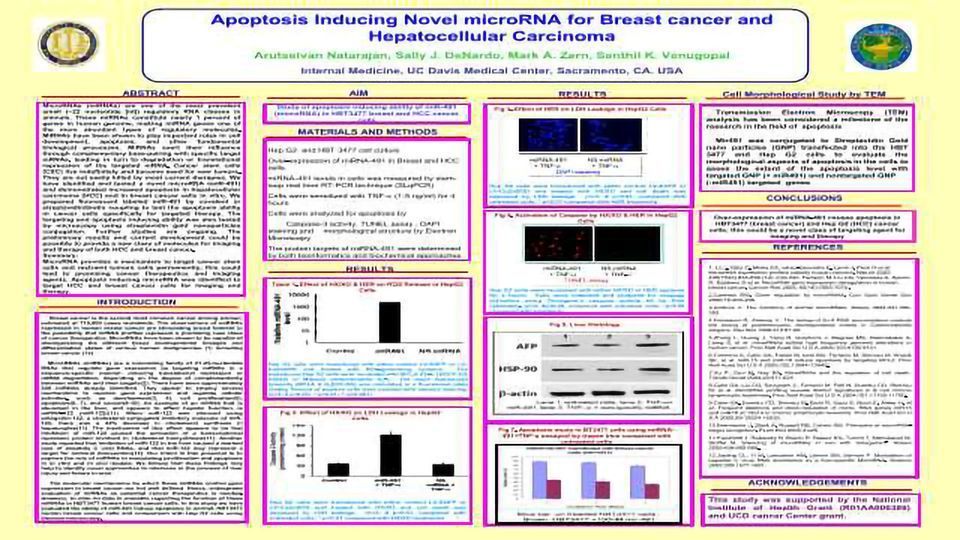Apoptosis Inducing Novel microRNA for Breast cancer and Hepatocellular Carcinoma

MicroRNAs (miRNAs) are one of the most prevalent small (~22 nucleotide [nt]) regulatory RNA classes in animals. These miRNAs constitute nearly 1 percent of genes in human genome, making miRNA genes one of the more abundant types of regulatory molecules. MiRNAs have been shown to play important roles in cell development, apoptosis, and other fundamental biological processes. MiRNAs exert their influence through complementary base-pairing with specific target mRNAs, leading in turn to degradation or translational repression of the targeted mRNA. Cancer stem cells (CSC) live indefinitely and become seed for new tumors.
They are not easily killed by most current therapies. We have identified and tested a novel microRNA (miR-491) and demonstrated increased apoptosis in hepatocellular carcinoma (HCC) and in breast cancer cells in vitro. We prepared fluorescent labeled miR-491 by covalent orstreptavidin/biotin coupling to test the apoptosis ability in cancer cells specifically for targeted therapy. The targeting and apoptosis inducing ability was also tested by microscopy using streptavidin gold nanoparticles conjugation. Further studies are ongoing. The preliminary results and current development could be possible to provide a new class of molecules for imaging and therapy of both HCC and breast cancer.







